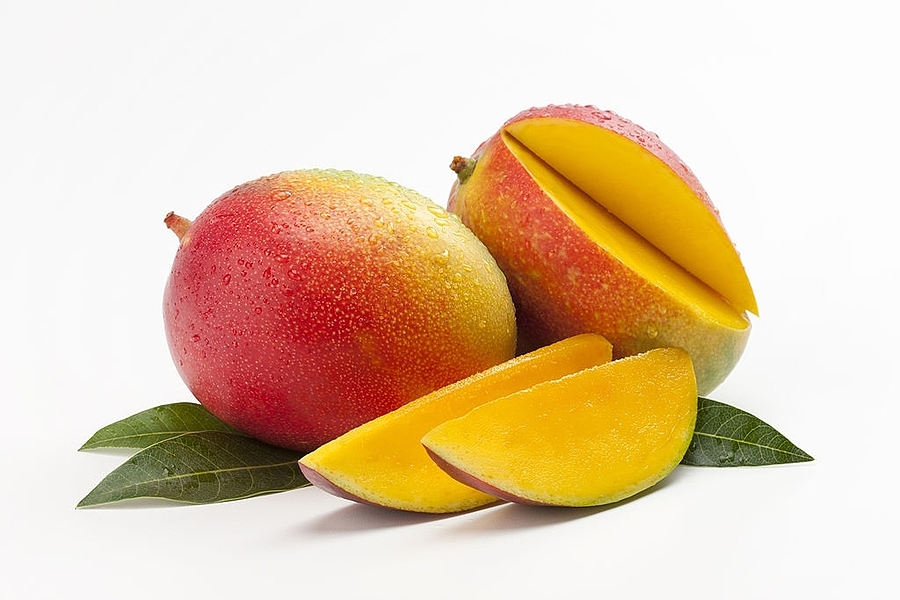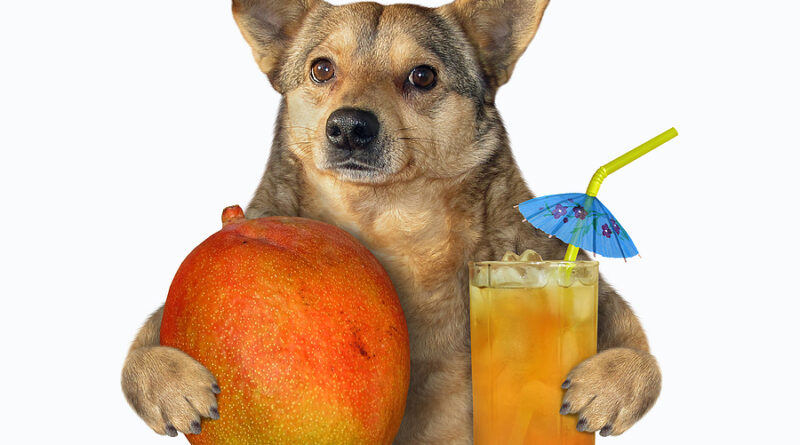Can Dogs Eat Mango?
Featured image by © bigstockphoto.com / iridi
Can Dogs Eat Mango? is it safe
Mangoes have been a nutritious sweet treat for humans ever since they were cultivated in the tropics around 4000 years ago. They’re eaten pickled, turned into candy, and sometimes consumed before they even ripen in many south Asian countries. It’s one of the few foods that kids and adults can agree is healthy as they are nutritious.
However, man’s best friend loves sweet treats, too. Some even say that dogs have humans trained to sneak in a sweet treat now and then with their honest puppy eyes. Whether your dog is on a raw food or vegetarian diet, they likely have a sweet tooth for many fruits like children develop a sweet tooth for candies, but can dogs eat mangoes and benefit from them like humans?
The Benefits of Feeding a Dog Mangoes
Mangoes are generally safe for dogs to eat, but there are over 500 kinds of mangoes cultivated the world over. Some mangoes are more acidic than others, while some pack a bigger helping of fruit sugars and various vitamins. Overall, mangoes are amazing fruits for both dogs and humans.
For Healthy Eyesight
Mangoes are rich in Vitamin A, which is important for the formation of healthy new skin cells and hair follicles. A dog that is getting its recommended daily intake of Vitamin A will have noticeably shinier coats, clearer skins, and better eyesight. Muscles also benefit from a healthy dose of the vitamin, as dogs with a deficiency will soon exhibit muscle deterioration and listlessness, along with poor eyesight at night.
For Healthy Blood and Skin
The fruit is also rich in Vitamin B6, one of the most important of the B vitamins. It aids greatly in the generation of glucose and the formation of healthy red blood cells. Also, one of the greatest functions of Vitamin B6 in your dog is improving its immune system by regulating its hormones and improving the general health of its nervous system.
Perhaps the most striking benefit of mangoes is its large helping of Vitamin C, one of the essential nutrients for rebuilding broken tissues and improving immune system function. Dogs can create a natural supply of Vitamin C from their livers, but it’s healthy to supplement that to reduce the signs of early aging and inflammation.

The Downsides of Feeding a Dog Mangoes
Perhaps the only downside to feeding your dog mangoes is their high sugar content. According to the USDA, there are 46 grams of sugar per one whole mango, and with the slightly addictive taste of the fruit, it can lead to some problems down the line, like diabetes. It’s healthful to feed your dog mangoes in moderation, just like with any other dog treat.
How Do You Feed Your Dog Mangoes?
The mango fruit has an outer skin, the flesh of the fruit, and then the pit. The skin and the fruit flesh is safe to eat for dogs, but the pit might have traces of cyanide and is big enough to cause a blockage in their esophageal tract. While the Pet Poison Control doesn’t recognize mangoes as poisonous fruits, it’s better to err on the safe side.
For toy dogs, downing a mango pit can be fatal, so make sure to remove it before presenting it at feeding time. Some signs of an obstruction in a dog’s digestive tract include diarrhea, vomiting up their lunch, the loss of appetite, and lethargy.
In conclusion, mangoes are safe for dogs as long as they’re peeled, de-pitted, and given in moderation. They are packed with minerals like potassium, beta-carotene, and vitamins A, C, and B6 that will improve your dog’s health but its sugar content can easily lead to diabetes if you’re not careful. The recommended serving is a quarter of a cup per day.




